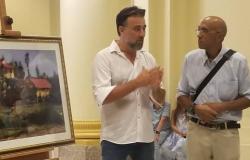
The Deputy Prime Minister of Cuba, Ines Maria Chapman Waughpublished a tweet (later deleted) in which he mistakenly revealed part of the regime’s strategy for the so-called “confrontation on social networks.”
Concerned about the impact of social networks on the public opinion of Cubans and the growing discredit of official media and messages among the population, the Cuban totalitarian regime desperately seeks to gain lost ground in the “information battle” against the “haters” (activists and civil society in general).
In that sense, the National Assembly of People’s Power (ANPP) approved Law 162/2023 “On Social Communication” at the end of May of last yearwhich came into effect this June 5 after its publication in the Official Gazette of Cuba.
As a result of this novelty in the legal scenario, which seeks to “regulate and organize the Social Communication System” in Cuba, the Institute of Information and Social Communication (ICS) offered a press conference in which “aspects of the Law were detailed. and its complementary regulations.”
And this is where the deputy prime minister of Cuba and member of the Central Committee of the Communist Party of Cuba (PCC) comes into play, who was present at the press conference organized by the ICS (old ICRT), as he spread through his social networks.
But… oh the networks!… Chapman Waugh thought of sharing photographs of the event in his publication, and in one of them users detected information that caught their attention.
“At the ICS I exchanged with directors of the different organizations of the Central State Administration on Social Communication in all its areas. The three pillars of government management: CTI, digital transformation and Social Communication for development,” said the deputy prime minister on her X account (former Twitter).
However, one of the photographs of the event shared by the leader showed an ICS official explaining a slide projected on a screen with the title “Social Network Management.”
The text on the slide indicated that for “social media management,” the ICS has “98 corporate lines: of which 71 are incorporated into combat on the X platform”.
In addition, it specified that “the organization of work on the networks has 6 key users, 25 strategic, 3 liaison and the rest support.”
Not even half an hour had passed after the publication of Chapman Waugh’s tweet when the user Camagüey detected the information contained in the photograph shared by the deputy prime minister of the Cuban regime. The screenshot was sung.
“Inesita la inepta shows us how the Castro Government organizes the work of the cyberclarias on the networks,” Camagüey said in her publication, in which she shared Chapman Waugh’s tweet and an enlargement of her shared photograph, in which it was legible. the text on the slide.
The leader’s mistake immediately spread on social media. And immediately (less than an hour after it was discovered), Cuba’s deputy prime minister deleted her publication. “They sent Inesita la Inepta to delete the post!” Camagüey said in another tweet.
But it was too late: social networks and Cuban civil society had already captured and interpreted the image, reaching the conclusion that the ICS slide revealed part of the regime’s “confrontation” strategy in the social networks.
“Oh no! Minister Inés María Chapman lost confidential information about the spontaneity with which they act… She says that they have 98 corporate lines of which 71 are incorporated to spread spontaneous propaganda, called ‘combat’… 6 key users, 25 strategic…”, warned the user identified on Facebook as Edmundo Dantés Junior.
And like him, many others echoed the minister’s blunder that revealed the totalitarian regime’s strategy to confront messages contrary to its interests through bots, cyber-combatants (known as cyberclarias) and other accounts serving of the “continuity” propaganda supposedly led by the ruler Miguel Díaz-Canel.
It is not the first time for Inés María
It is not the first time that Inés María Chapman Waugh makes a problematic mistake in her handling of social networks.
In mid-August 2021, at the height of the coronavirus pandemic and with the country’s hospitals overwhelmed by the number of patients, the Cuban vice prime minister deleted a tweet in which she posted images of the isolation center where she and her son suffered Covid-19, and which generated outrage among social media users.
“Messages of gratitude arrive to the doctors: after 8 days of isolation and fight against Covid-19, my son and I have already tested negative and are at home. Many thanks to the medical, nursing and paramedical staff of the Raúl Isolation Center Tamayo, from Holguín,” posted the Cuban regime official, along with two photographs.
However, the conditions of that facility contrasted with those intended for the country’s population, where there were no medications, no amenities, and no comfortable bathrooms, according to Internet users.
In one of the photographs you could see a private room with two beds and a properly equipped bathroom in the isolation center where the vice prime minister and her son spent their quarantine in Holguín. The staff was also seen cleaning the bedroom, decorated with paintings and even equipped with a television set.
Despite having deleted the publication, in a belated attempt to hide the privileges enjoyed by the highest echelons of power in Cuba, the top hashtag The responses to the tweet revealed the discontent of Cubans and the disapproval that the publication generated.
Several Internet users captured the tweet, and published complaints on social networks, in which they once again criticized the life of the Cuban leaders and their lack of empathy towards the pain of the population. Chapman Wauhg’s tweet had even received a like of Díaz-Canel.
Social Communication Law: An instrument of censorship of the Cuban regime
Law 162/2023 “On Social Communication” was designed, among other adaptations of “continuity”, to silence dissident voices and control the public narrative in Cuba.
One of its fundamental principles or axes is aimed at prohibiting the dissemination in traditional media and in cyberspace of information that could destabilize the “socialist State.”
Only the media linked to the government, the PCC and mass organizations have legality in the country. This strict control of information contravenes the principles of freedom of the press and expression, essential in a democratic society.
The Constitution in Cuba declares that the media are socialist property and cannot be of any other type. This provision, together with the new law, ensures that any independent media that attempts to operate in the country will automatically be illegal.
Activists and independent journalists, who have been targeted by programs such as We make Cuba and “Con Filo”, see this law as another tool for the government to silence any form of criticism of the State.
The law also specifies that the content cannot be used to subvert the constitutional order or to support communication attacks against the government. The provisions are vague enough to justify censoring any content the regime deems inappropriate.
Allowing commercial advertising and sponsorship in the media appears to be an opening, but it is conditional on state approval, ensuring that revenue does not come from sources the government considers subversive.
Although presented as a modernization of the regulatory framework, Cuba’s Social Communication Law is actually another tool of the regime to maintain its absolute control over information and repress any dissident voice with greater force and speed.




